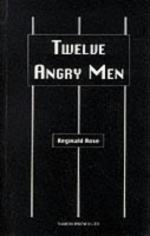
|
| Name: _________________________ | Period: ___________________ |
This quiz consists of 5 multiple choice and 5 short answer questions through Act II.
Multiple Choice Questions
1. Why does the dissenting juror challenge the fact that other jurors are willing to take the alleged eyewitness' word when they would not accept the defendant's word?
(a) Because the eyewitness belongs to the same family as the victim.
(b) Because they assert that the eyewitness was unreliable.
(c) Because the eyewitness belongs to the same ethnic group.
(d) Because they assert that all people from the defendant's community are liars and the eyewitness is from the area.
2. According to the defendant, why did he buy the alleged murder weapon?
(a) To give it as a present to his friend.
(b) Because he lost the one he had before.
(c) Because the one he had before was stolen.
(d) Because his father beat him.
3. How does Juror Eight capitalize on the error made by Juror Three in threatening to kill him?
(a) He asks Juror Three whether he really means that.
(b) He asks Juror Three if he would really kill him.
(c) He asks the other jurors if they think that Juror Three would really kill him.
(d) He tells the other jurors "See? He said what he didn't mean."
4. How does the dissenting juror feel about the job done by the lawyer for the defendant?
(a) He believes the lawyer did a good job.
(b) He believes the lawyer was ill-prepared for the defense.
(c) He believes the lawyer was intimidated by the prosecution.
(d) He is dissatisfied with the questions asked by the lawyer.
5. How do some members of the jury respond to those who disagree?
(a) With an open mind.
(b) With additional questions.
(c) With ostracism and ridicule.
(d) With contradictions.
Short Answer Questions
1. Which two jurors are moved by the discovery that the old man would have taken longer than he said to move from his bed to the door after hearing the noise upstairs?
2. According to the evidence, what weapon was used to kill the old man?
3. Why does a juror change his vote after the discussion in Act II about the defendant's words?
4. Which juror is an immigrant to the United States?
5. How does the dissenting juror suggest that the jury should proceed instead of declaring a "hung" jury?
|
This section contains 469 words (approx. 2 pages at 300 words per page) |

|




